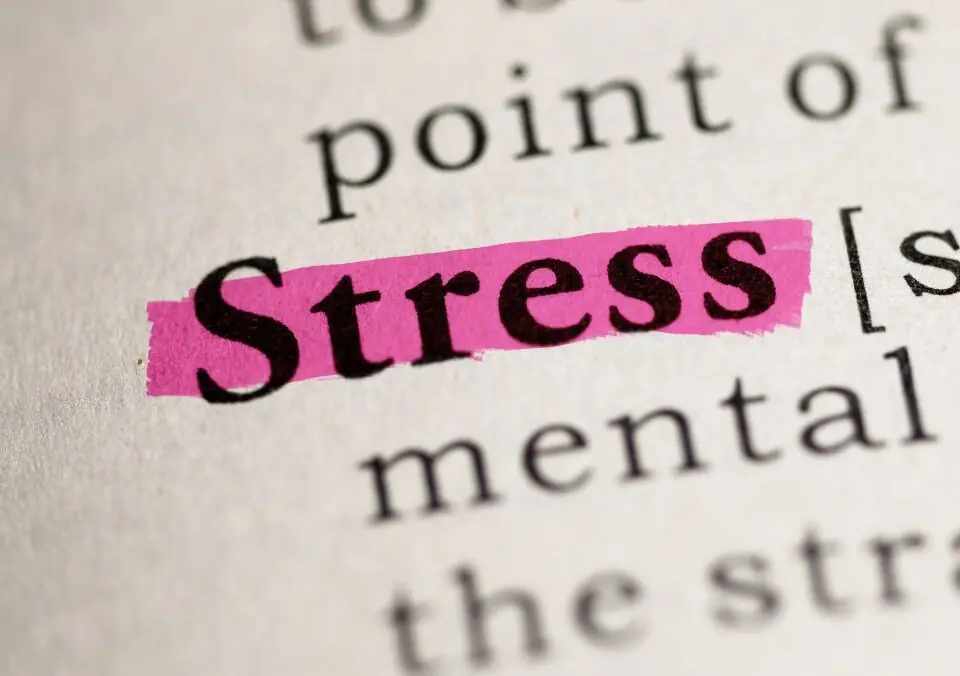Blog
Small Amounts of Stress Can be Beneficial

Stress often gets a bad rap as something to be avoided at all costs. It’s commonly associated with anxiety, health deterioration, and a variety of chronic conditions. This perception is well-founded; extended periods of stress can lead to a host of health problems, from cardiovascular diseases and heartburn to weakened immune function and even premature aging. As health researchers have pointed out, consistent, high levels of stress can cause significant damage to the body, leading to cell damage and the exacerbation of various medical conditions. However, an interesting paradigm shift is emerging in the field of stress research: not all stress is detrimental. In fact, certain types of short-term stress can be beneficial to our health and overall well-being.
Understanding Stress and Its Types
To appreciate the positive impacts of short-term stress, it’s essential to understand what stress is and the different types it can manifest as. Stress, in a physiological sense, is a response to perceived threats or challenges in our environment. This response is mediated by a complex interaction between the nervous system and the endocrine system. When faced with a stressor, the body launches a cascade of hormonal changes, primarily involving the release of cortisol and adrenaline, which prepare you to face the challenge—this is often referred to as the “fight or flight” response.
Stress can be classified mainly into two types: acute and chronic.
- Acute Stress: This type of stress is short-lived and arises in response to a specific event or situation. It can manifest during exams, job interviews, or even while engaging in thrilling activities like public speaking. The good news is that acute stress can be a source of motivation and inspiration. It can also improve cognitive function and bolster immune responses, making it an essential part of our lives.
- Chronic Stress: On the other hand, chronic stress is long-lasting and can lead to a myriad of health problems. It often arises from ongoing issues such as financial troubles, unhealthy relationships, or unfulfilling jobs. Chronic stress can cause significant wear and tear on the body, leading to conditions like heart disease, obesity, and even depression.
Understanding these distinctions is critical, as it highlights that stress does not always need a negative connotation. Research indicates that learning to effectively manage and even embrace short bursts of stress can cultivate resilience and improve one’s overall health.

The Concept of “Stress Fitness”
Health psychologist and longevity researcher Elissa Epel has introduced the idea of “stress fitness.” This concept revolves around the notion that just as we train our bodies through physical exercise to build strength and endurance, we can also train our minds and bodies to better handle stress. By deliberately incorporating short bursts of manageable stress into our daily routines, we can enhance our bodies’ natural resilience against future stressors.
Epel’s insights draw upon a growing body of research that supports the notion of “hormesis,” which refers to the idea that exposure to a low dose of a harmful agent can create beneficial effects on health. For example, just as mild exposure to toxins can strengthen our immune system, short, controlled bursts of stress can lead to physical improvements.
Practical Applications of Stress Fitness
So how can we transform this knowledge into practical applications? Epel recommends several strategies to incorporate stress fitness into your weekly routine. Below are a few effective methods supported by scientific studies:
- High-Intensity Interval Training (HIIT)
High-Intensity Interval Training has gained popularity in the fitness community for its efficiency and effectiveness. Research shows that engaging in quick, intense bursts of exercise followed by short recovery periods can lead to various health benefits, including increased cardiovascular fitness and improved metabolic health. HIIT is a potent form of physical stress that can enhance your body’s capacity to handle stress over time.
Numerous studies have documented the benefits of HIIT, such as improved insulin sensitivity and reduced body fat. More importantly, these activities also have positive effects on mental health. Engaging in HIIT can lead to the release of endorphins, neurotransmitters that help elevate mood and reduce perceptions of stress.
- Cold Showers
Taking cold showers is another popular method for incorporating short bursts of stress into your routine. Exposing your body to cold temperatures can trigger a series of physiological responses that can improve your health. Cold exposure can increase alertness, invigorate the immune system, reduce muscle soreness, and even improve circulation.
Researchers suggest that cold exposure may help optimize the body’s stress response, enabling better resilience in the face of future challenges. One study indicated that individuals who regularly practiced cold exposure reported increased tolerance to discomfort and were more adept at handling stress in everyday life.
- Sauna Sessions
Sauna use has been celebrated for its numerous health benefits, which range from relaxation to cardiovascular improvements. When you enter a sauna, the heat creates a mild stress on the body that promotes sweating and increased heart rate, mimicking the effects of moderate exercise.
The stress experience in a sauna triggers a range of adaptations in the body, leading to improved stress tolerance and potential longevity benefits. Research suggests that regular sauna use can help reduce the risk of cardiovascular diseases, improve endurance performance, and even enhance mental well-being.
- Mindfulness and Meditation
Integrating practices such as mindfulness meditation can also help individuals learn to manage stress more effectively. Mindfulness training emphasizes awareness of the current moment and helps build psychological resilience. By practicing mindfulness, you can better respond to stressors rather than reacting impulsively.
Studies have shown that mindfulness and meditation can help reduce symptoms of anxiety and depression, cultivate emotional regulation, and improve stress resilience. Moreover, these practices can enhance your ability to cope with acute stress, making it an excellent addition to your stress fitness routine.
Combining Physical and Mental Stressors
One of the most powerful aspects of stress fitness is that it allows for the combination of physical and mental stressors. Engaging in physical activities while simultaneously tackling mental challenges can create a synergistic effect that enhances resilience.
Activities like rock climbing, obstacle course racing, or martial arts combine physical exertion with mental focus. These activities not only provide an acute stress response but also promote problem-solving skills, adaptability, and mental fortitude.
By choosing activities that push you both physically and mentally, you can create a robust system for building the resilience needed to face life’s challenges with more ease.
Embracing a Balanced Approach to Stress Management
While short bursts of stress can be advantageous, it is crucial to maintain a balanced approach to overall stress management. Chronic stress, as mentioned earlier, can lead to severe health implications, so it’s essential to recognize when stress becomes overwhelming.
Some strategies to balance your stress include:
- Rest and Recovery: Make sure you allocate time for rest and relaxation. Engage in activities that promote relaxation, such as yoga or leisurely walks, to counterbalance the stressors in your life.
- Social Support: Surrounding yourself with a supportive social network is vital for emotional resilience. Leaning on friends and family during times of stress can help alleviate its effects.
- Healthy Lifestyle Choices: A balanced diet, regular exercise, and good sleep hygiene are fundamental components of stress management. Maintaining overall health can create a robust foundation for handling stress effectively.
Conclusion
Incorporating small amounts of stress into your routine—through methods such as high-intensity interval training, cold exposure, and sauna sessions—can contribute positively to your overall health and stamina. Embracing the concept of stress fitness reinforces the notion that not all stress is harmful and that learning to navigate and manage stress can lead to enhanced resilience.
Remember, the key to reaping the benefits of stress is moderation and balance. Listening to your body, understanding your limits, and knowing when to rest are crucial components of effective stress management. Embrace the idea that a little stress can be your ally, preparing you for challenges while enhancing your well-being.
For more health-related articles and tips on managing stress, check out the Fill Your Plate blog.
By Heide Kennedy, Arizona Farm Bureau Communications Intern


















